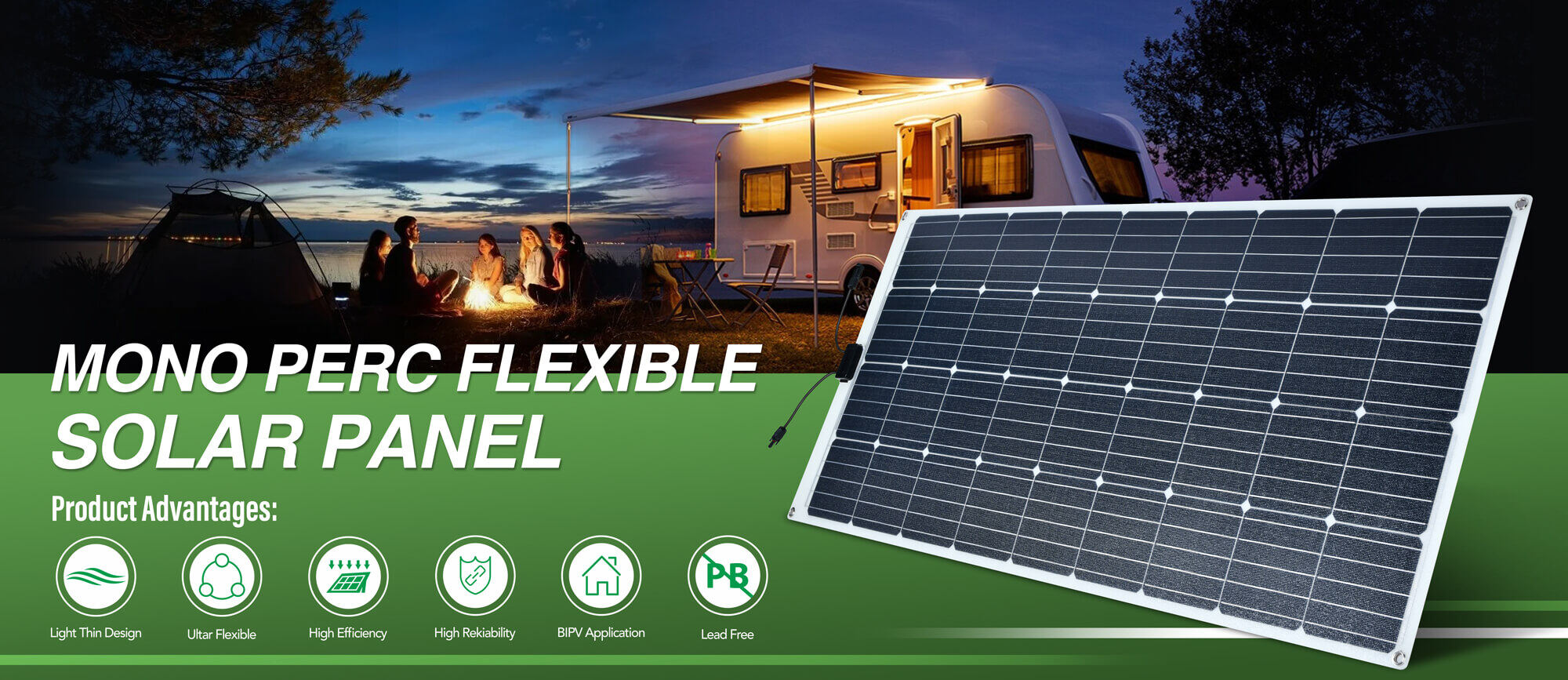
If you're looking for a way to power your RV that's both efficient and eco-friendly, then you may want to consider investing in flexible solar panels. Flexible solar panels are one of the latest advancements in solar power technology, and they offer a number of advantages over traditional rigid solar panels.
Flexible solar panels are made from thin, lightweight materials that can be easily rolled up and transported. This makes them a perfect choice for RVs and other mobile applications. Flexible solar panels also have a lower profile than traditional panels, so they won't take up as much space on your roof.
Another great feature of flexible solar panels is that they're lightweight and easy to install. This makes them ideal for RVs, as they won't add too much extra weight to your vehicle.They're also easy to set up, so you can have them up and running in no time.Since flexible solar panels are lightweight and easy to install, they're perfect for RVs. Not only will they help you generate power while you're on the road, but they'll also be very easy to set up.
Another great thing about flexible solar panels is that they're waterproof. This makes them perfect for use in outdoor spaces, as you don't have to worry about them getting wet. This is a must for any solar panel, as exposure to water can quickly damage them.
Flexible solar panels can be used in a variety of applications, making them a versatile choice. They can be used for everything from powering your RV to providing energy for your home. They can also be used for charging batteries and providing power for appliances and electronics.
Flexible solar panels are also easier to install than traditional panels. In many cases, they can be installed with no tools required. This makes them a perfect option for anyone who is DIY-inclined.Disadvantages of Flexible Solar PanelsDespite their many advantages, flexible solar panels do have a few disadvantages.
First, they are not as efficient as traditional solar panels. Flexible solar panels typically have a lower wattage than traditional panels.Second, they are more expensive than traditional solar panels. This is because they are a newer technology and are not yet as widely produced as traditional solar panels.Third, they are less durable than traditional solar panels. They can be damaged more easily if they are not handled correctly.
There are a few disadvantages to flexible solar panels. One is that they are not as efficient as traditional solar panels. This means that you will need more panels to generate the same amount of power.Additionally, flexible solar panels are more expensive than traditional panels.
Flexible solar panels are also more expensive than traditional panels. This is partly due to the fact that they are a newer technology. However, the price is expected to come down as this technology becomes more popular.Finally, flexible solar panels are not as durable as traditional solar panels. They are more prone to damage from weather and wear and tear.
Flexible solar panels are much lighter and easier to install than their rigid counterparts. This makes them ideal for RVs, where weight and space are often at a premium. Additionally, flexible solar panels are much more durable than rigid panels, and can withstand beingbent, flexed, or otherwise mishandled during installation.
Most importantly, though, flexible solar panels are significantly more efficient than rigid panels. That's because they can be made with thinner, more efficient solar cells. This means that, for the same amount of space, a flexible panel can produce more power than a rigid panel.






